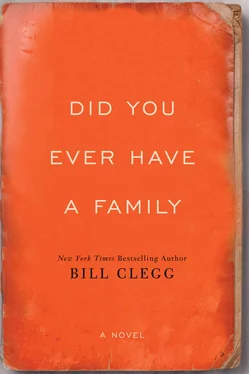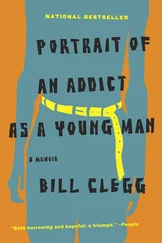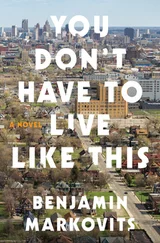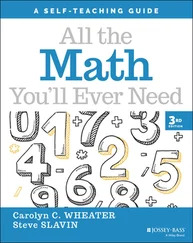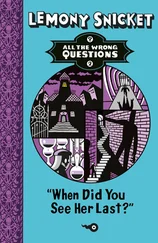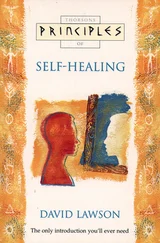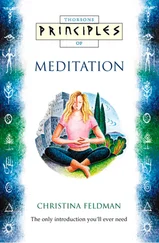June sits down on the damp moss and draws her knees to her chest. There is no peace for her here. She remembers the morning in North Dakota two days before when she decided to find this place. Bowman Lake. These two words came to her as she watched what must have been summer-school students filing noisily across the parking lot into the school. Bowman Lake, Glacier National Park, Montana . She saw again the small, black capital letters at the bottom of the postcard spelling the location, and as the school buses shut their doors and lumbered toward the road, she could see the pristine lake, its glassy surface reflecting a cloudless sky. She remembered Lolly’s careful handwriting on the other side, and as she read the short sentences over and over, she understood where she needed to be. A place where her daughter had found no flaw.
Her car just sits there. A newish Subaru wagon with Connecticut plates. Black, like all the cars I remember there. I guess we could call in the license-plate number if we really wanted to know who she is, but it feels too sneaky, and on some level I think each of us — me, Kelly, Cissy — feels as if she has, even though she barely speaks, appointed us her protectors. From what or from whom I don’t know, but from something. So tracing her plates — however one does that, I have no idea — or sleuthing around in any way feels like breaking the deal we struck when we agreed to let her stay here anonymously. If we’d had a problem then, we could have refused her, but we chose not to and so she stays here, whoever she is.
At Christmas, one of Kelly’s brothers came down from Seattle with his wife and sons, and we opened presents Christmas morning and cooked a big dinner that afternoon. Kelly left a note under the door to Room 6 inviting her to join our four o’clock supper, but she never responded or came, not that we expected her to. Cissy left a tin of her sugar cookies topped with chocolate and caramel in addition to what looked like a loaf of the same banana-and-blueberry bread she made for us. At least she’s getting some fruit, Kelly joked, but for the first time looking genuinely worried.
I’ve been worried since the day she arrived. Something about the way she dragged herself when she walked, her exhaustion, and the limit to how much she could engage, the way her eyes were open physically but in every other way were shut. It was a look I recognized. What if she’s come to die here? What then? I asked Kelly after the New Year. Then she’s come here to die and there’s nothing we can or should do about it, she answered, matter-of-fact, as usual. But if she dies and it comes out that we checked her in without ID or a credit card, won’t we get in trouble? Isn’t there some law? Kelly looked at me in that way that she does, that way that makes me feel like a ridiculous child who’s asked to stay up an hour past her bedtime. She looked at me this same way when I first brought up leaving Seattle and moving here. And she kept on looking at me this way until she finally came around. One thing about Kelly is that although she’s deeply set in her ways — up at six fifteen every morning, black coffee and a boiled egg with the newspaper down the hatch by seven, Levi’s cords and L.L. Bean flannel shirts and nothing but nothing else — she is also brave. If she has a good enough reason to set a new course, she will. In this case the good enough reason was me.
I wanted to leave Seattle because of my friend Penny. She was my closest friend and I’d known her since I was a little kid. We grew up a few doors down from each other in Worcester, Massachusetts, in big Catholic families, and went to the University of Massachusetts together after high school. We never had a fling because neither of us could back then admit to ourselves or each other that we were gay. Not in high school, not in college, and not for a while after. You have to remember, this was the seventies and early eighties, and though it’s not that long ago, for gays it’s like another millennium. Especially in Worcester, Massachusetts, and especially in our neighborhood, which was 100 percent Catholic and 100 percent straight, at least on the surface. After Penny and I graduated from college, we went to New York. She wanted to work in advertising, and neither of us could face returning to Worcester. I had always planned on Boston, but Penny could be pushy when she wanted to be, and so New York it was. We lived on the Upper East Side at first, and in many ways, not good ones, it felt like places we’d been. Mostly families, straight couples, and hard-partying college graduates living five to an apartment. It took us a while but we found our way to other parts of the city, and eventually to other women like us. But, boy, we were slow! Or at least I was. Once she found it, Penny took to that scene quick and within a few months had a girlfriend, a job as a bartender at Henrietta Hudson, and was on a softball team. I didn’t like the bars so much, the hard drinking and the drugs. Those girls were wild. Most of them, like us, were from somewhere else and had whole lifetimes of loneliness and anger stored up. Once they hit the city, and each other, they let it all out, and often it was messy. Penny started to get messy, and after she moved in with her girlfriend, a young girl named Chloe, we drifted apart. I was working at the Lowell Hotel on East Sixty-third at the time as a check-in clerk. It’s a beautiful art deco gem, and many of the rooms are actually apartments where people live either year-round or when they are in town for shopping or shows or business. I loved the order of the place, the fresh flowers, the crisp staff uniforms, the history. It felt like nothing bad could ever happen there. I got promoted twice in that first year, and by the time I was twenty-six I was an assistant manager. Nothing had ever really worked so well for me — not childhood, school, family, or the gay scene in New York. In all these places I had always been the odd duck. But at the Lowell, I fit. I knew where I was useful and where I wasn’t, and so I spent most of my time there, on and off the clock. Meanwhile, Penny was bartending and boozing and giving up on her dream of working in advertising. She’d gone on some interviews and sent her résumé around when we first got to New York, but once she moved in with Chloe, all that stopped. Chloe had been raised in Brooklyn by two hippie parents and was out and proud since high school. She was nineteen and had already dropped out of Barnard College by the time she met Penny.
It wasn’t until Penny’s first overdose on heroin that I began to understand what was going on. Even though it had been over a month since we’d seen each other, I was still her emergency contact at the bar, so two days after she hadn’t showed up I got a call. I tracked down Chloe, who tried at first to cover it up. She floundered with a story that Penny was home with the flu, but only after I showed up at their apartment on the Lower East Side and pounded on the door did she finally tell me the truth. Penny was on the psych ward at Bellevue, where she had been transferred after detoxing in the emergency room. The hospital wouldn’t release her for at least a few more days. Chloe told me later that night that she wanted Penny to move out, that she was a disaster, and that the whole scene was too much for her to handle. Never mind that it was Chloe who’d introduced Penny to heroin, we packed Penny’s things and moved them into my studio in Murray Hill. Chloe gave me a letter to give to Penny, breaking things off, I assume, since I never read it. Whatever she wrote convinced Penny not to try to change Chloe’s mind.
Penny lived with me the rest of that year. There’d be two more overdoses, hundreds of dollars stolen from my wallet, and a suicide attempt before Penny finally agreed to go to a rehab I found outside Seattle. I flew with her there and stayed the first few days, but then returned to New York to my job. She stayed in that rehab for eight months and then moved for a year and a half into a nearby sober house with other women in recovery. By then I’d been out to Seattle to visit her a dozen times. Penny’s family, like mine with me, wanted nothing to do with her when she came out to them, which was the Christmas after our first year in New York. It’s not an original story except that we decided to tell our parents the same night. We timed it to dinner, which was six o’clock in both of our houses. In my case, my father left the table and my mother wept into her napkin. In her case, they asked her to leave the house and come back only when she had, her father said, cleaned up her act . She knocked on my door that night, slept in a sleeping bag on my bedroom floor, and we went back to New York together first thing in the morning. My mother eventually came around, but only after my father had died, and even then she asked that I not rub it in her face by telling her about girlfriends. Meeting them, and of course there only ever was one, was out of the question. So she died doing the best she could, but in the end we barely knew each other.
Читать дальше
